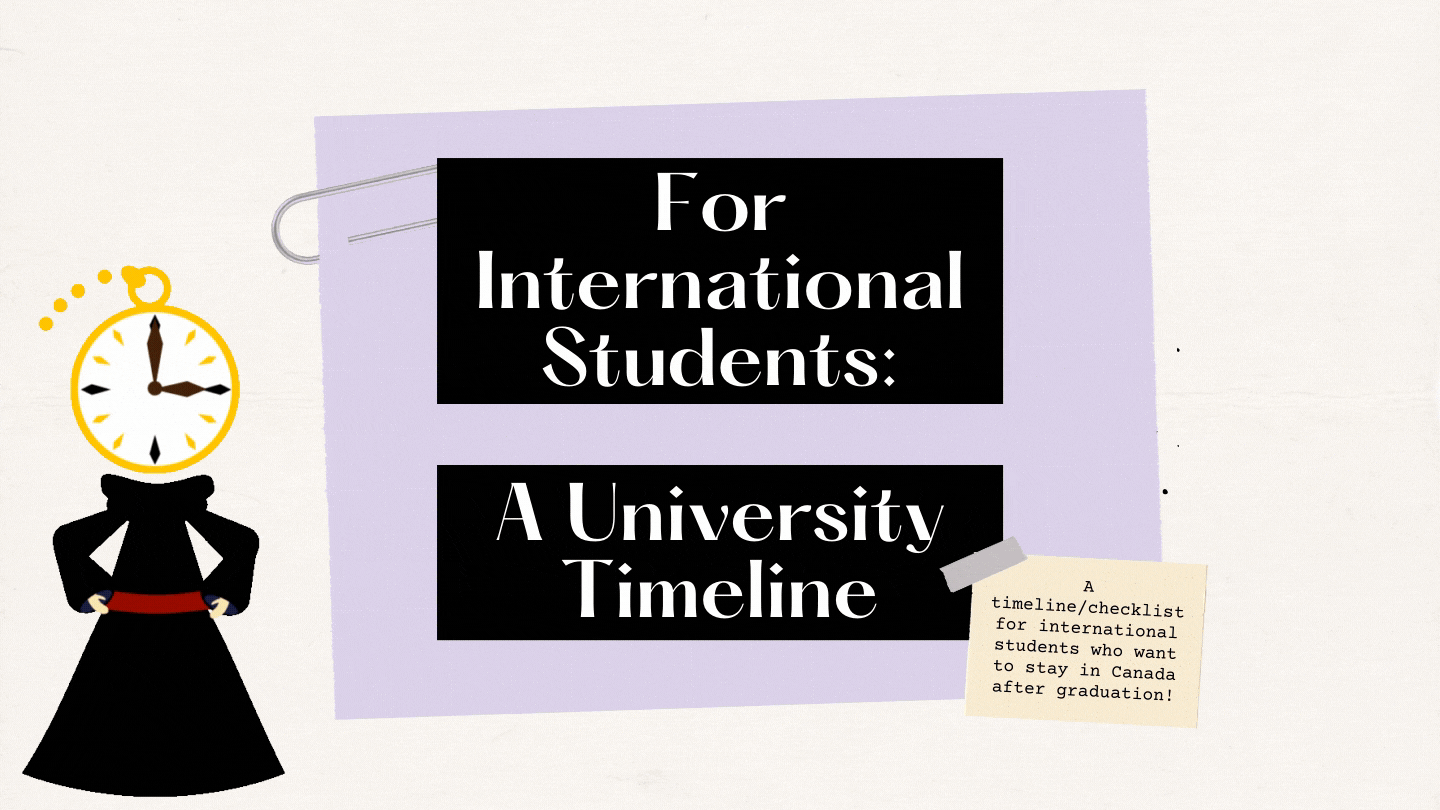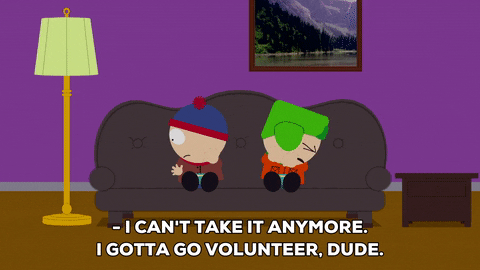
Like many other international students, one of the reasons why I decided to go to school in Canada was because I knew that there were good opportunities to stay and work after graduation. I had heard about my parents’ friends whose kids went to school in Canada, loved it so much, and chose to stay, and how easy the process was. The possibility of staying in Canada after getting my degree was on the top of my list of “pros” when I decided to come to the University of Alberta. But after arriving in Canada and starting my degree, I wasn’t thinking about the future too much. To be honest, I thought these four years were going to go by way slower than they have. I am now starting my fourth year and I realized I had no idea what I should be doing if I want to stay in Canada after my graduation next semester.
After talking to some other international students who are also about to graduate, it came to my attention that we all wanted to stay and that we had “heard that it was an easy process,” but we had no idea what that process was. This is why I’ve decided to write a timeline/check-list for all of us wait-until-the-last-minute fourth years and other international students who are hoping to stay in Canada after graduation.

Don’t stress too much about it!
Starting university is confusing enough, take some time to start to think about if you see yourself staying in Canada after graduation.
Volunteer and get involved with clubs on campus.
This is good for getting to know people and networking, and even for building future references! Every student benefits from this, not just international students. Although, it is particularly important to get to meet new people if you just moved here!
Keep volunteering and being active in your community.

Go to the office hours of the classes you are interested in.
Talk to your professors about what they do, and find out if there are any volunteer or research opportunities in your faculty. It’s a good way to, again, build references and also explore what you think you might be interested in doing as a career later on.
Visit the career centre!
There are a lot of summer jobs available with U of A in the summer that a lot of people don’t know about. Most study permits allow you to work part time during the school year and full time during the summer, so take advantage of this opportunity and gain real world experience. International Student Services (ISS) also has some good tips for looking for jobs during COVID-19.
Stay for one spring or summer if you can!
This is a good way of realizing that Edmonton is not cold all year around and that there are a lot of fun activities to do.
Read your faculty emails for job opportunities.
There are a lot of part-time work opportunities during the school year (like writing for this blog!).

Ok so now you panic… Just kidding!
I came to realize that everyone starts to look at visa stuff about now, so you (and I) are not alone.
Book an appointment with International Student Services (ISS).
They are really good at giving you step-by-step information and answering questions. Sometimes the language used by Immigration, Refugees, and Citizenship Canada (IRCC) can be confusing and there is a lot of information that easily becomes overwhelming. Remember, there are support systems at the university meant to make this process easier so use them!
After booking my appointment and meeting with ISS, I put together this basic rundown of what you actually have to do if you want to apply for your Postgraduate Work Permit (PGWP):
- After you complete your program you will need to apply for a Letter of Completion from your faculty. This is basically a letter from the university saying that you completed your program. If you apply after you get your final marks in the Spring semester, it usually comes by the second week of May.
- You will also have to request an Official Transcript from Bear Tracks to use as one of your supporting documents.
- Make sure that your passport is valid for at least three years, so you can get your PGWP for three years. This depends if your program of study was two years or more in length.
- Your study permit must still be valid when you apply for the PGWP from inside Canada.
- There is a $255 fee that comes with applying for this work permit.
- Create an IRCC account if you don’t have one already and apply. (I am not going to go into the technicalities of this, but there are tip sheets provided by International Student Services that give you the step by step of how to do this. I got access to this document by emailing International Student Services).
These are some good things to take into consideration:
- You should apply for the PGWP within 90 days for the Letter of Completion if you are staying in Canada, or before the end of your study permit.
- If you decide to leave Canada you have 180 days to apply for the permit after receiving the Letter of Completion.
- Processing time varies for any application, always check the IRCC website or visit the International Services Centre to chat with an International Student Immigration Advisor. but you can start to work as soon as you have applied and submitted a PGWP application .
- You don’t have to have a job offer in order to apply for this permit (since it is an open employment work permit).
Since the immigration processes are always changing, frequently check with the immigration advisors on campus before you start your application.
I hope these tips were helpful and I wish you the best of luck for whatever you decide to do after you graduate!
University of Alberta International — International Student Services supports international students throughout their academic careers and delivers immigration advising, as well as programs and services, to facilitate their educational and personal goals. For more information, visit ualberta.ca/international.